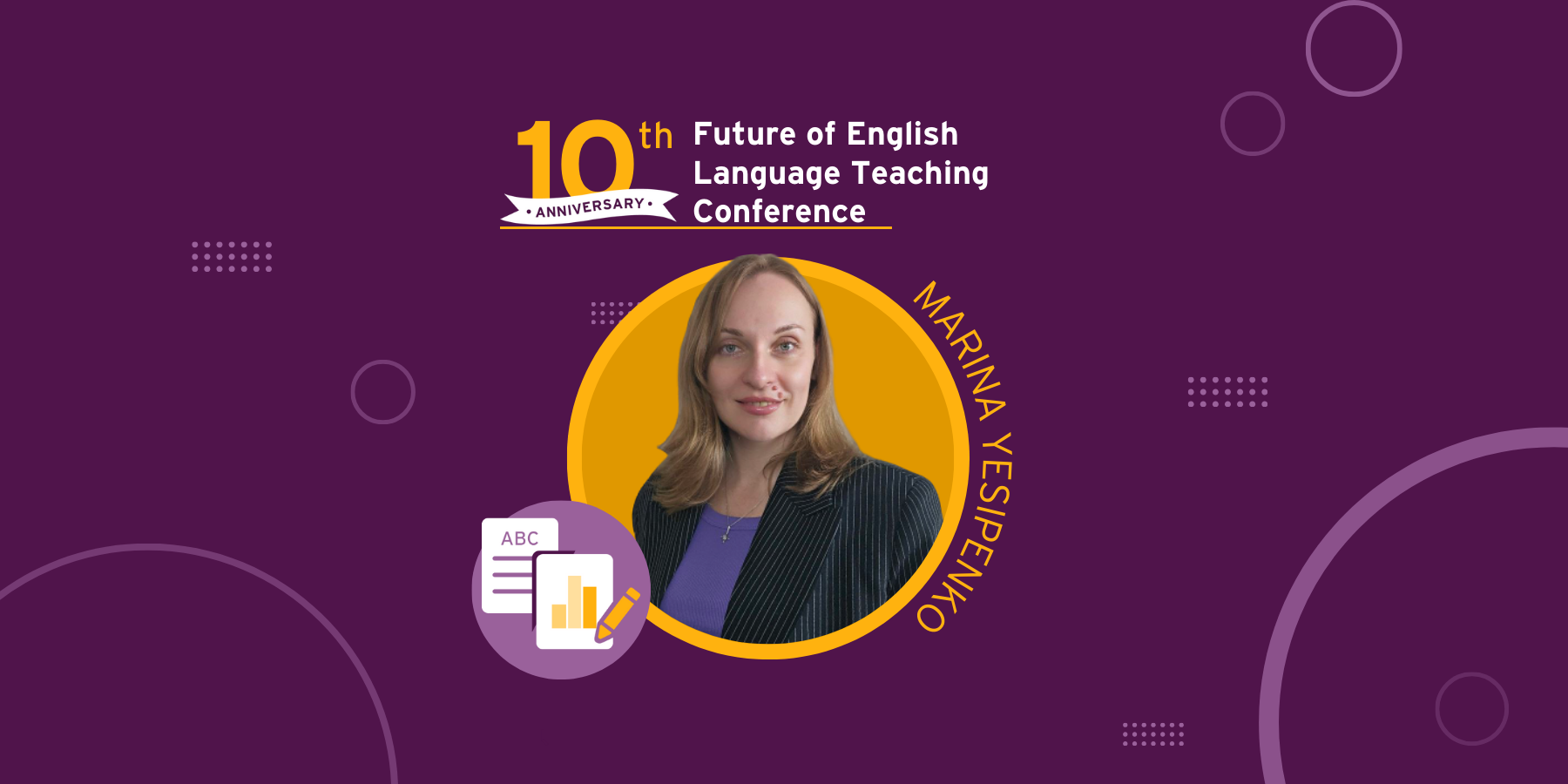From politics to podcasts: teaching ESP to professionals with public-facing roles

From politics to podcasts: teaching ESP to professionals with public-facing roles
At this year’s Future of English Language Teaching (FoELT) conference, Marina Yesipenko explored how English for Specific Purposes (ESP) is evolving to meet the needs of professionals in highly visible roles. Her workshop focused on helping educators design courses that develop not just language proficiency, but also confidence, performance and presence.
Marina Yesipenko is a language educator, methodologist and communication coach with over 20 years of experience teaching English, Japanese and Czech. Based in Prague, she works with politicians, speakers and educators to develop public communication skills in English. She combines her background in ELT, cognitive semiotics and Gestalt therapy to design personalised courses that support both language development and confident public presence. She also trains teachers to integrate soft skills into ESP and professional coaching.
Expanding the scope of ESP
Marina began by noting that English for Specific Purposes now reaches far beyond traditional domains such as business correspondence or technical writing. In the age of personal brands, livestreaming and global digital communication, many professionals use English to perform in public settings.
Her clients include politicians preparing for international interviews, educators leading webinars, and creators producing podcasts. These learners need English not only to inform but to inspire and connect, often under the pressure of real-time communication.
Marina explained that this new generation of ESP learners requires a holistic approach that blends language teaching with elements of communication psychology, performance coaching and emotional awareness.
Understanding learner needs
A central part of Marina’s session focused on identifying the specific linguistic and psychological needs of public-facing clients. Learners working in politics, education or media often experience anxiety about making mistakes or being misunderstood.
Marina encouraged teachers to create safe, supportive spaces where such learners can practise vulnerability, test new approaches and build confidence. This involves integrating rehearsal-style activities into lessons, such as mock interviews, live presentations and recorded practice sessions, where feedback focuses on both form and impact.
By viewing communication as a performance rather than a test, teachers can help learners channel nervousness into presence and authenticity.
Integrating language, tone and performance
Marina shared practical strategies for designing ESP lessons that combine linguistic precision with expressive delivery. These include work on pronunciation, rhythm and tone, as well as rhetorical devices used to engage audiences.
Authentic materials play an essential role in this process. Teachers can draw on news clips, podcasts, or social media posts relevant to the learner’s professional context. Analysing real communication models helps students develop awareness of audience expectations and language choices across platforms.
Marina also demonstrated how media-based tasks can be adapted for different proficiency levels. For example, one group might focus on paraphrasing and vocabulary extension, while another works on improvising responses or refining intonation for emphasis.
The teacher as coach and collaborator
Marina highlighted that the teacher’s role in ESP for public-facing professionals extends beyond traditional instruction. Teachers often act as coaches, mentors and collaborators who guide learners through the personal and interpersonal aspects of communication.
She described how empathy and active listening are essential to this role. Teachers need to balance technical feedback with emotional support, helping learners recognise their progress and refine their personal style.
In many cases, this approach leads to more equal partnerships between teacher and learner, where both contribute expertise — the teacher in pedagogy, the learner in professional content and context.
Designing courses that empower
Marina encouraged participants to adopt a flexible, learner-centred approach when designing ESP courses. She shared examples of modular syllabuses that allow for personalisation, with components dedicated to speech performance, media communication, and intercultural awareness.
She also discussed assessment methods that prioritise self-reflection and practical outcomes. Instead of formal testing, progress can be measured through project-based assignments such as delivering a speech, hosting a podcast, or recording a video message.
This focus on real-world performance makes learning more meaningful and immediately transferable to professional contexts.
Key takeaways
|
Theme |
Key idea |
|
Evolving ESP |
English for Specific Purposes now includes communication for performance and public engagement. |
|
Learner needs |
Public-facing clients require support with confidence, clarity and authentic expression. |
|
Practical integration |
Lessons should combine language development with tone, rhetoric and audience awareness. |
|
Teacher role |
ESP educators act as coaches and collaborators, not just language instructors. |
|
Empowerment |
Flexible, reflective courses help learners communicate with confidence and impact. |
Final thought
Marina’s workshop reminded participants that modern ESP teaching goes beyond grammar and vocabulary. It is about empowering learners to use English as a tool for authentic self-expression and connection in the public sphere. By blending linguistic expertise with empathy and creativity, teachers can help their learners find their voice whether on stage, online or on air.
